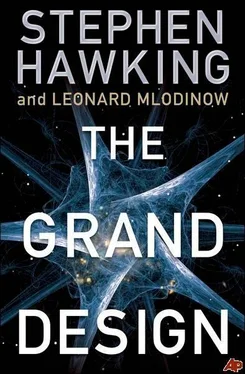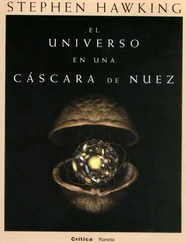As the Ionian influence spread, there appeared others who saw that the universe possesses an internal order, one that could be understood through observation and reason. Anaximander (ca. 610 BC-ca. 546 BC), a friend and possibly a student of Thales, argued that since human infants are helpless at birth, if the first human had somehow appeared on earth as an infant, it would not have survived. In what may have been humanity’s first inkling of evolution, people, Anaximander reasoned, must therefore have evolved from other animals whose young are hardier. In Sicily, Empedocles (ca. 490 BC-ca. 430 BC) observed the use of an instrument called a clepsydra. Sometimes used as a ladle, it consisted of a sphere with an open neck and small holes in its bottom. When immersed in water it would fill, and if the open neck was then covered, the clepsydra could be lifted out without the water in it falling through the holes. Empedocles noticed that if you cover the neck before you immerse it, a clepsydra does not fill. He reasoned that something invisible must be preventing the water from entering the sphere through the holes-he had discovered the material substance we call air.
Around the same time Democritus (ca 460 BC-ca. 370 BC), from an Ionian colony in northern Greece, pondered what happened when you break or cut an object into pieces. He argued that you ought not to be able to continue the process indefinitely. Instead he postulated that everything, including all living beings, is made of fundamental particles that cannot be cut or broken into parts. He named these ultimate particles atoms, from the Greek adjective meaning “uncuttable.” Democritus believed that every material phenomenon is a product of the collision of atoms. In his view, dubbed atomism, all atoms move around in space, and, unless disturbed, move forward indefinitely. Today that idea is called the law of inertia.
The revolutionary idea that we are but ordinary inhabitants of the universe, not special beings distinguished by existing at its center, was first championed by Aristarchus (ca. 310 BC-ca. 230 BC), one of the last of the Ionian scientists. Only one of his calculations survives, a complex geometric analysis of careful observations he made of the size of the earth’s shadow on the moon during a lunar eclipse. He concluded from his data that the sun must be much larger than the earth. Perhaps inspired by the idea that tiny objects ought to orbit mammoth ones and not the other way around, he became the first person to argue that the earth is not the center of our planetary system, but rather that it and the other planets orbit the much larger sun. It is a small step from the realization that the earth is just another planet to the idea that our sun is nothing special either. Aristarchus suspected that this was the case and believed that the stars we see in the night sky are actually nothing more than distant suns.
The Ionians were but one of many schools of ancient Greek philosophy, each with different and often contradictory traditions. Unfortunately, the Ionians’ view of nature-that it can be explained through general laws and reduced to a simple set of principles-exerted a powerful influence for only a few centuries. One reason is that Ionian theories often seemed to have no place for the notion of free will or purpose, or the concept that gods intervene in the workings of the world. These were startling omissions as profoundly unsettling to many Greek thinkers as they are to many people today. The philosopher Epicurus (341 BC-270 BC), for example, opposed atomism on the grounds that it is “better to follow the myths about the gods than to become a ‘slave’ to the destiny of natural philosophers.” Aristotle too rejected the concept of atoms because he could not accept that human beings were composed of soulless, inanimate objects. The Ionian idea that the universe is not human-centered was a milestone in our understanding of the cosmos, but it was an idea that would be dropped and not picked up again, or commonly accepted, until Galileo, almost twenty centuries later.
As insightful as some of their speculations about nature were, most of the ideas of the ancient Greeks would not pass muster as valid science in modern times. For one, because the Greeks had not invented the scientific method, their theories were not developed with the goal of experimental verification. So if one scholar claimed an atom moved in a straight line until it collided with a second atom and another scholar claimed it moved in a straight line until it bumped into a cyclops, there was no objective way to settle the argument. Also, there was no clear distinction between human and physical laws. In the fifth century BC, for instance, Anaximander wrote that all things arise from a primary substance, and return to it, lest they “pay fine and penalty for their iniquity.” And according to the Ionian philosopher Heraclitus (ca. 535 BC-ca. 475 BC), the sun behaves as it does because otherwise the goddess of justice will hunt it down. Several hundred years later the Stoics, a school of Greek philosophers that arose around the third century BC, did make a distinction between human statutes and natural laws, but they included rules of human conduct they considered universal-such as veneration of God and obedience to parents-in the category of natural laws. Conversely, they often described physical processes in legal terms and believed them to be in need of enforcement, even though the objects required to “obey” the laws were inanimate. If you think it is hard to get humans to follow traffic laws, imagine convincing an asteroid to move along an ellipse.
This tradition continued to influence the thinkers who succeeded the Greeks for many centuries thereafter. In the thirteenth century the early Christian philosopher Thomas Aquinas (ca. 1225-1274) adopted this view and used it to argue for the existence of God, writing, “It is clear that [inanimate bodies] reach their end not by chance but by intention… There is therefore, an intelligent personal being by whom everything in nature is ordered to its end.” Even as late as the sixteenth century, the great German astronomer Johannes Kepler (1571-1630) believed that planets had sense perception and consciously followed laws of movement that were grasped by their “mind.”
The notion that the laws of nature had to be intentionally obeyed reflects the ancients’ focus on why nature behaves as it does, rather than on how it behaves. Aristotle was one of the leading proponents of that approach, rejecting the idea of science based principally on observation. Precise measurement and mathematical calculation were in any case difficult in ancient times. The base ten number notation we find so convenient for arithmetic dates back only to around AD 700, when the Hindus took the first great strides toward making that subject a powerful tool. The abbreviations for plus and minus didn’t come until the fifteenth century. And neither the equal sign nor clocks that could measure times to the second existed before the sixteenth century.
Aristotle, however, did not see problems in measurement and calculation as impediments to developing a physics that could produce quantitative predictions. Rather, he saw no need to make them. Instead, Aristotle built his physics upon principles that appealed to him intellectually. He suppressed facts he found unappealing and focused his efforts on the reasons things happen, with relatively little energy invested in detailing exactly what was happening. Aristotle did adjust his conclusions when their blatant disagreement with observation could not be ignored. But those adjustments were often ad hoc explanations that did little more than paste over the contradiction. In that manner, no matter how severely his theory deviated from actuality, he could always alter it just enough to seem to remove the conflict. For example, his theory of motion specified that heavy bodies fall with a constant speed that is proportional to their weight. To explain the fact that objects clearly pick up speed as they fall, he invented a new principle-that bodies proceed more jubilantly, and hence accelerate, when they come closer to their natural place of rest, a principle that today seems a more apt description of certain people than of inanimate objects. Though Aristotle’s theories often had little predictive value, his approach to science dominated Western thought for nearly two thousand years.
Читать дальше












